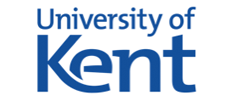Professor Ian Stansfield from the University of Aberdeen has recently been awarded funding
for a collaborative project investigating how to optimize the production of biologics, which was catalyzed by his participation at BioProNET events.
The production of vaccines, antibodies and other proteins in cell lines can induce cellular stress, which can lead to errors in translation — including ribosome frameshift errors. Such mistranslation can compromise the yield and quality of the protein product, and hence the safety and efficacy of biologics. Ian’s project will pursue a better understanding of causes of translational error through the design and application of novel reporters of mistranslation.
“Initial discussions on this project were started as a result of the BioProNET sandpit meeting, held in June 2015, when I made initial contact with a scientist from the biotechnology company Fujifilm Diosynth Biotechnologies,” says Ian.
As a result of this networking meeting, Ian co-organized a BioProNet-sponsored workshop on recombinant protein authenticity, together with colleagues Mick Tuite and Tobias von der Haar from the University of Kent. Ian commented “The attendance of scientists from Fujifilm at our BioProNET-sponsored workshop in London consolidated ideas for the project”.
The project includes collaboration partner Professor Phil Farabaugh, a molecular biologist from University of Maryland, USA, and physicist Dr Mamen Romano (University of Aberdeen) who will be mathematically modelling gene expression processes. Ian’s group will then use synthetic biology approaches to couple the output from the new mistranslation sensors to recombinant protein expression, in order to autoregulate mistranslation and the quality of the recombinant protein product.
Fujifilm will test these synthetic gene circuits in in yeast and E.coli to maximise the impact of this research on industrial biotechnology.
More about the project, which is jointly funded by the BBSRC (to Ian Stansfield and Mamen Romano) and the US National Science Foundation (to Phil Farabaugh) can be found here.







